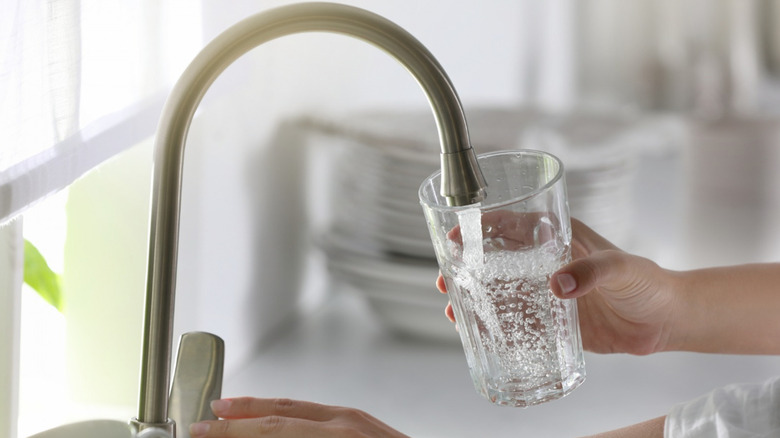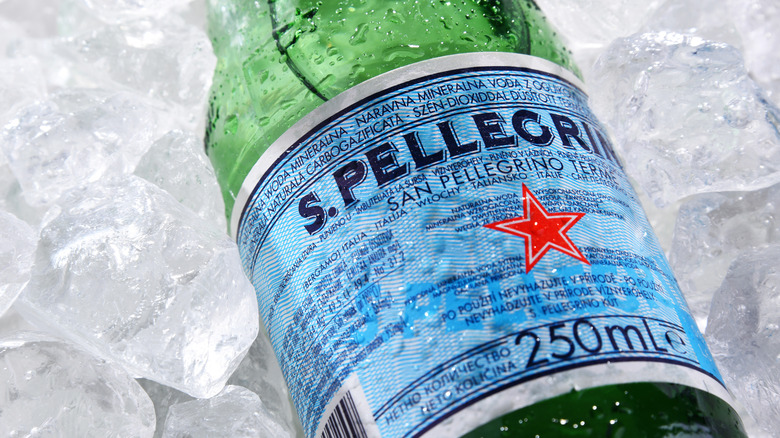You Probably Shouldn't Drink The Tap Water In Italy (It Has Nothing To Do With Safety)
When traveling to Italy, it's important to be aware of the local customs and etiquette to avoid any embarrassing situations. One of these customs involves the consumption of tap water, which is considered impolite in many parts of the country. It's not because it is unsafe to drink — in fact, Italian tap water is generally regarded as safe and of high quality. Instead, it has more to do with the country's culinary culture and the importance of food and drink in Italian society.
In Italy, food and drink are seen as essential elements of daily life and are often treated with a sense of reverence. This means there is a certain level of expectation when it comes to how food and drink should be consumed. For example, it's common to see Italians savoring their meals slowly and taking time to appreciate each bite. This attitude extends to beverages as well, including tap water. Drinking tap water is considered overly casual and can be seen as a breach of etiquette, especially in more formal settings.
What if you want to drink water?
So, what should you do if you're in Italy and need or prefer to drink water? The best option is to order a bottle of still or sparkling water from a restaurant or café. This is the most common way to consume water in Italy, and it's considered polite and appropriate. Bottled water is also considered an important component of the Italian food culture, and is often paired with food to complement the flavors and textures of the dishes in much the same way as wine. Additionally, it's important to note that there is a wide variety of bottled water brands available in Italy. Trying out different types can be a fun and exciting way to experience what the country has to offer.
It's worth noting that each Italian region has unique water sources with different mineral contents, which can affect the overall taste. For example, the water from the mountains in Sicily tends to be high in calcium, magnesium, and potassium, while water taken from the northern central regions, is known for being softer. Some bottled brands are more popular in certain areas, so don't hesitate to ask the locals for their recommendations.

